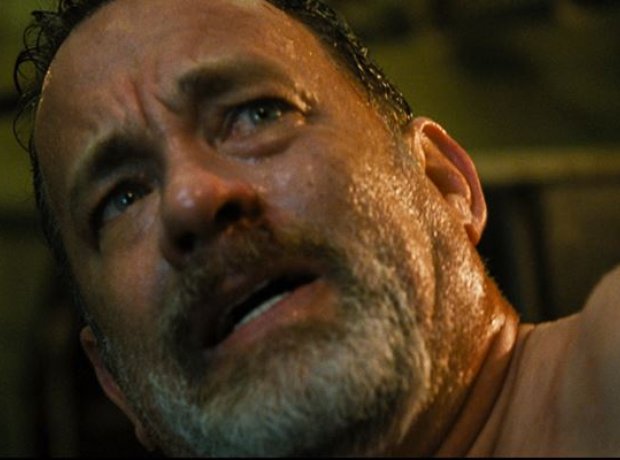

To see how far you can push texture and minimalism was a challenge, and it’s a fine line between that and just being really boring (laughs).įascinating stuff.
#Henry jackman captain phillips full
So it becomes much less thematic, much more textural…it almost became more like a record in places where it’s not full of complicated harmonies or extravagant themes so much as tension which is mostly textural with pulses and drones and ostinatos.
#Henry jackman captain phillips movie
That in itself was the biggest challenge and needed the most discipline because I like doing more virtuosic music, but any time you go into an area like that with this kind of movie all you do is harm the film. The impact that has on music is that it has to be incredibly un-invasive, un-thematic, un-demonstrative, and minimalist in the extreme. When you think about pirates you have a clichéd image of villains with eye patches, whereas in fact when you see modern day piracy in a Paul Greengrass film you sort of understand why they’re forced to make that decision economically. There’s no way you could have heroic music when the Navy show up and music to support Captain Phillips somehow making out the pirates to be treacherous villains. Paul was absolutely adamant – and rightly so – that none of that could fly. The classic approach is that you need a key theme for the villain and a theme for the heroes and they’re dutifully deployed throughout the film. Often the purpose of a film score is really to enhance and accentuate key emotions. Because you’ve got Tom Hanks playing Captain Phillips in a psychologically realistic way and the situation is realistic and the Somali pirates are realistically portrayed and everything is morally ambiguous and politically ambivalent, nothing would ruin that movie more quickly than some big, sweeping theme. It’s almost an exercise in self-discipline. Unlike a movie like X-Men: First Class or Captain America: The Winter Soldier where it would be disappointing if you didn’t have a grand theme and there aren’t huge sweeping moments, none of that works and none of that is relevant in Captain Phillips. Weirdly enough he has a journalistic background and all of that comes through in his films so that has a massive impact on music. If you shut your eyes and imagine a Paul Greengrass film it doesn’t have a lot of the standard devices of blockbuster films even though obviously Captain Phillips is a big movie. If you think about Paul Greengrass as a filmmaker – United 93, maybe not so much the Bourne movies, but he actually did a film called Bloody Sunday as well which not that many people have seen – he’s a very realistic filmmaker. It was wildly different to anything I’ve done, and that’s mostly to do with the nature of the film. Was your approach to scoring Captain Phillips any different to your other projects, and what was the biggest challenge you had to overcome? Jackman goes into detail on why self-discipline was paramount for the project, in addition to scoring epic superhero themes and what happens to music which doesn’t make it into the film.If you haven’t already, you can click here for your chance to win a copy or click here to buy one! More recently, the musician has completed work on upcoming Marvel movie Captain America: The Winter Soldier – and you can read what he had to say about that highly anticipated film here – but the focus of our chat was his work on Sony Pictures’ BAFTA winning / Oscar nominated Captain Phillips, for which the composer himself was BAFTA nominated. Aliens to apocalyptic comedy This is the End. Last week we had the pleasure of chatting with film composer Henry Jackman, whose body of work stretches from Monsters vs.


 0 kommentar(er)
0 kommentar(er)
